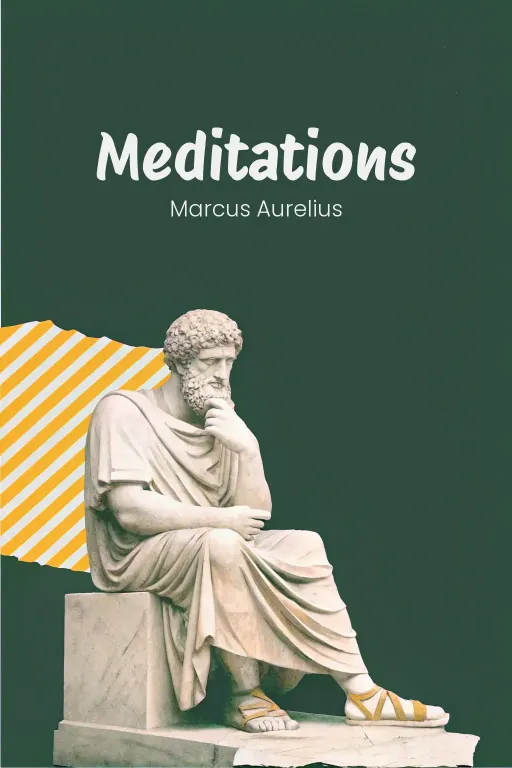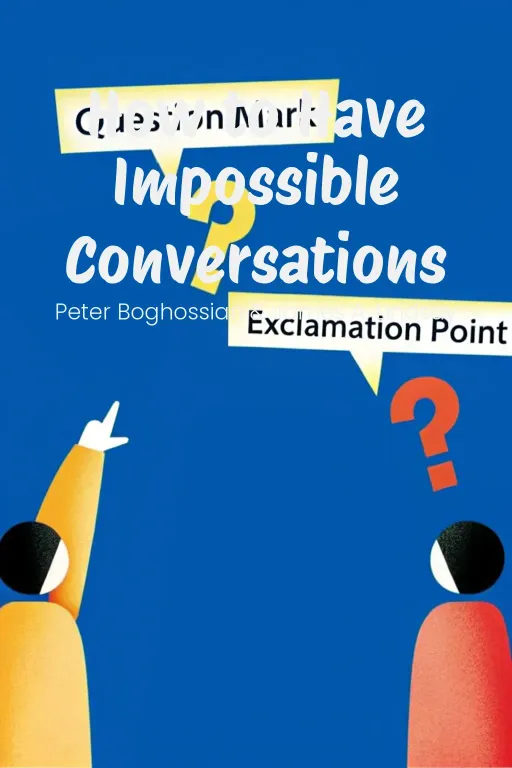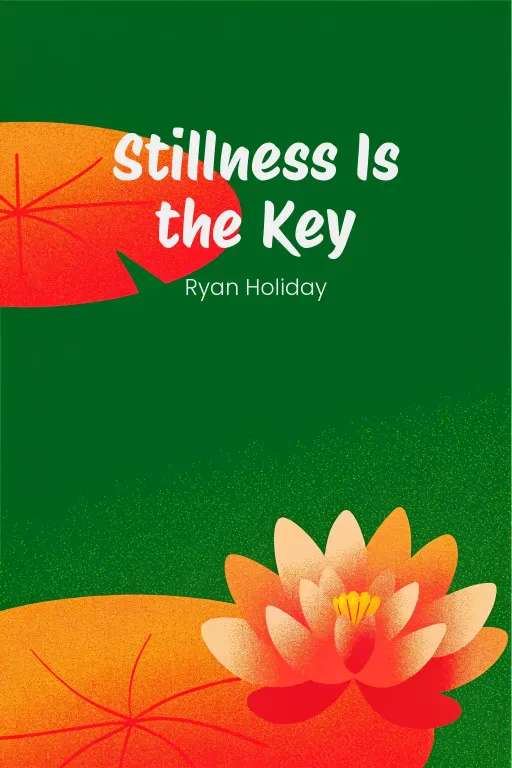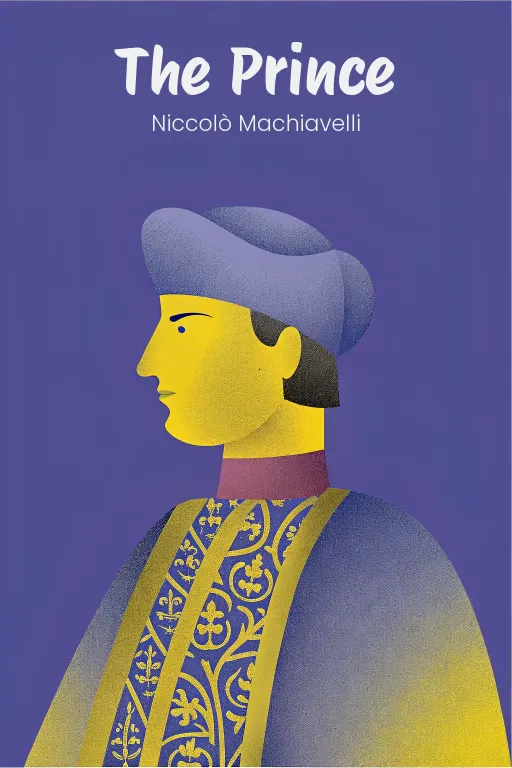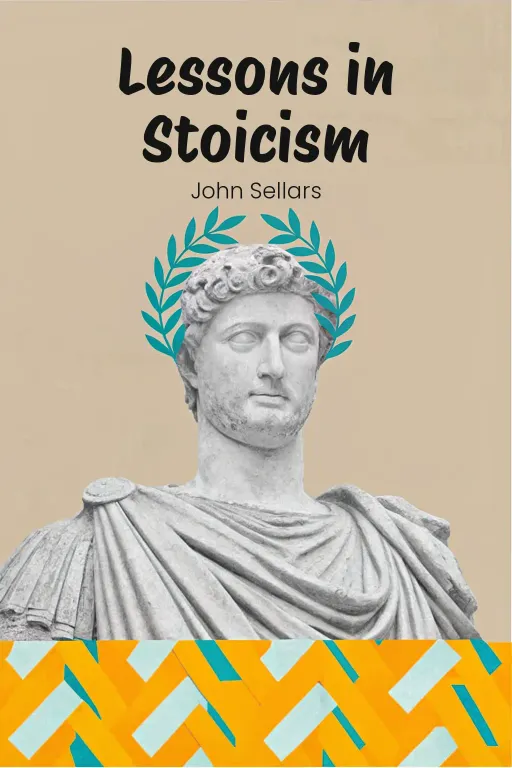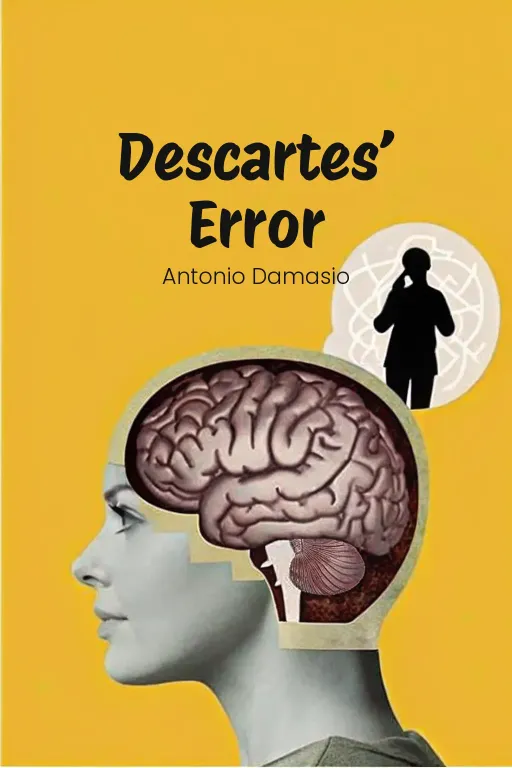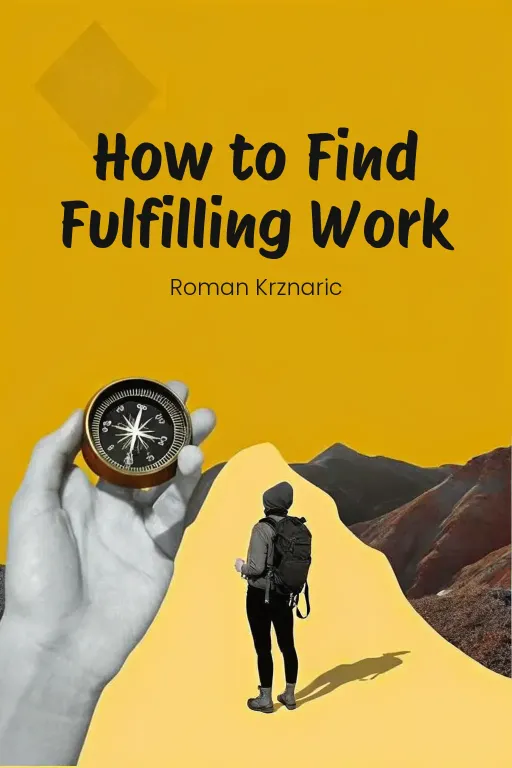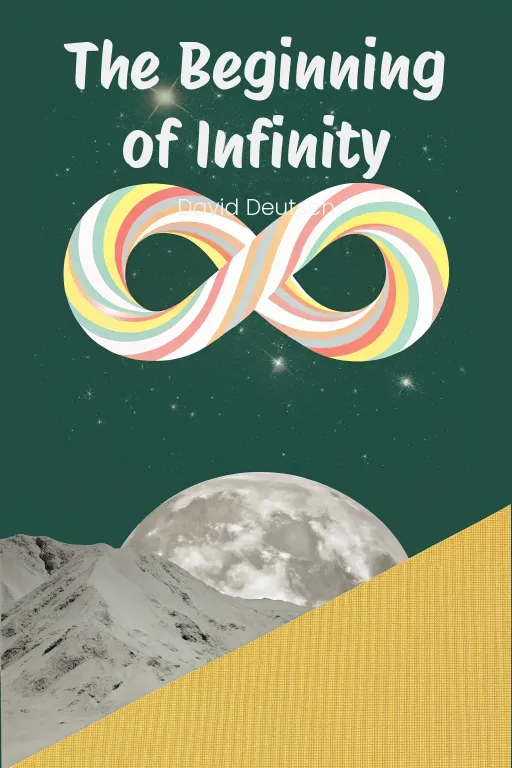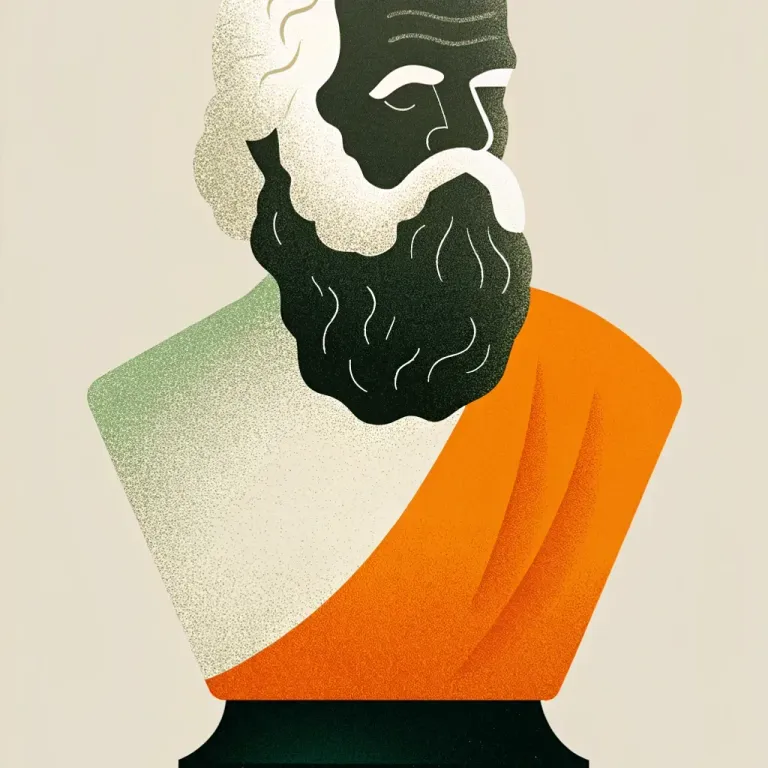
Ancient Wisdom: Stress-Free Living?
Podcast by The Mindful Minute with Autumn and Rachel
And Other Dangerous Situations
Ancient Wisdom: Stress-Free Living?
Part 1
Autumn: Hey everyone, welcome to the show! Today, we're exploring something super interesting: how ancient wisdom can actually help us navigate modern life. Have you ever stopped to think about how people dealt with stress or anxiety “way” back when, like 2,000 years ago? No smartphones, no therapy apps... no caffeine! Rachel: No coffee? Those were truly barbaric times, Autumn. But seriously, it's a great question. Life might have been simpler back then in some ways, but the fundamental human challenges—managing emotions, finding meaning—those haven't gone away. I’d say they might even be “more” pressing in today's world. Autumn: Exactly! That's where Jules Evans' book, Philosophy for Life and Other Dangerous Situations, comes in. Evans looks at how ancient philosophies—like Stoicism and Epicureanism—can offer some really practical guidance for dealing with the complexities we face daily. He even connects these older ideas with modern approaches like Cognitive Behavioral Therapy, giving us some solid tools for building emotional resilience, and fostering a sense of community. Rachel: I appreciate that he’s not just talking about old books and statues, Autumn, but about real stuff we can use in our chaotic lives. Autumn: Precisely! So today, we’re going to unpack that. We'll zoom in on three core ideas. First, we'll explore Stoicism and how it helps us build emotional resilience by focusing on what we “can” control, it is like building a philosophical bunker, right? Next, we'll get into Epicureanism, and how it can help us to be more mindful, and find joy in simple things. Last, we'll talk about how to actually “apply” these ideas today, from personal well-being to building healthy communities. Rachel: So, if you are feeling a bit burned out, or just struggling to make sense of the everyday chaos, this episode might give you a philosophical toolkit you didn't know you needed.
Stoicism and Emotional Resilience
Part 2
Autumn: Okay, let's dive into Stoicism and emotional resilience—the first topic. At its core, Stoicism, especially as explained by Epictetus, emphasizes the "dichotomy of control." Simply put, it’s about recognizing what we can control—our thoughts, emotions, and actions—versus what we can't, like external events or other people's actions. The key is focusing on our inner world instead of wasting energy on things we can’t change, right? Rachel: Right, but "focus on what you can control" sounds simplistic, doesn't it? Especially when life throws a curveball. Still, Epictetus lived this stuff; he was born into slavery and faced hardship. So, he’s not just philosophizing from some lofty perch. Autumn: Absolutely. It’s not about downplaying struggles; it’s about finding your power even in tough spots. Take Rhonda Cornum’s story. She was a flight surgeon in the Gulf War, captured and injured. Despite everything, she focused on what she “could” control—her reactions, her mindset. Rachel: Incredible perspective. But is this resilience a privilege? Cornum’s composure is amazing, but not everyone has that mental strength. Can this philosophy be… democratized? Or is it only for exceptional cases? Autumn: That's a fair question. But Evans argues these tools can be taught. Cornum's mindset came from learnable, practical ideas. Think of the Stoic "dichotomy of control" as a precursor to cognitive behavioral therapy, or CBT. Both say you can’t control everything, but you “can” control how you respond. Rachel: Okay, that makes sense. But honestly, does focusing on what we “can” control ever lead to inaction? Does accepting what we can't change risk turning into apathy? Autumn: It's a common misconception. Stoicism isn't about apathy; it’s about balancing acceptance with action. Epictetus also stressed acting decisively where you “do” have influence. Think of premeditatio malorum—premeditating evils. By mentally rehearsing challenges, you're building strategies, not just shrugging. It's not passive acceptance; it’s preparing for adversity. Rachel: So, it's like… philosophical disaster preparedness, right? Stocking up on mental resilience for tough times. Autumn: Exactly! And speaking of tough times, remember Admiral James Stockdale, a prisoner of war in Vietnam for seven years? He used Stoic principles—especially from Epictetus—to stay focused and lead through brutal conditions. He accepted his harsh reality while believing in eventual success. Rachel: The Stockdale Paradox. Tricky logic, accepting reality while maintaining hope. It’s a tightrope walk. But he used it not just for survival but as leadership under pressure. That’s why the U.S. Army—and even many corporate leaders—use these principles today. Autumn: Absolutely. Stoicism's resilience is useful beyond individual well-being; it's practical for leadership and decisions under stress. But it's not just for huge crises. The everyday applications matter, too, from dealing with conflicts to managing disappointment. Rachel: True, but going back to the book, those Cornum and Stockdale stories are almost cinematic. How can regular folks practice emotional resilience with Stoic tools in their daily grind? Autumn: That’s a great point. Let's focus on journaling and cognitive appraisal. Journaling was key for Stoics. Rachelus Aurelius, the Roman emperor, used his reflections to process emotions and cultivate virtue. It wasn't for fancy writing; it was about mental clarity in chaos. Rachel: Now people treat journaling as an Instagram aesthetic, with soft lighting and curated feelings! Autumn: Ironically, Rachelus Aurelius would hate that! But, superficiality aside, the habit's still profound. Studies show that expressive journaling—writing down unfiltered thoughts—can really reduce anxiety and depression. Modern science validates an ancient practice. Rachel: And then cognitive appraisal—the ultimate mental reframe. I liked the study Evans mentioned about the British soldier during the Iraq War. He realized bad news from home caused more anguish than battlefield stress. By shifting his perspective from "I can’t change what's happening back home" to "Where can I channel my energy right now?" he maintained balance. Autumn: Precisely! Philosophical resilience isn’t about pretending hardships aren't painful; it’s about finding inner stability. And Stoicism offers small, deliberate self-improvements. Journaling, reappraisal, morning meditation… they offer a structured way to evolve emotionally, even in overwhelming situations. Rachel: Yeah, and let’s be honest, part of the appeal is it doesn't require incense or chanting. It's refreshingly pragmatic. It’s about crafting your self-discipline—building the mental muscle to weather life’s storms. Autumn: Well said! And that commitment to growth, in big crises or small battles, keeps these ideas relevant. Now, let's move on to…
Epicureanism and Mindful Living
Part 3
Autumn: So, building on emotional resilience, we're diving into how philosophies like Epicureanism complement Stoicism, right? Stoicism helps us stand strong against the storms, but Epicureanism reminds us why we bother— to appreciate the calm, the beauty, the simple joys. It’s about expanding from just individual practices to how this wisdom can inform our modern approach to happiness and community. Rachel: Okay, so, if the Stoics are all about "buckle up, life’s gonna hit hard," Epicureans are kicking back, saying, "relax, enjoy the simple things, and hey, maybe don’t overcomplicate things." Autumn: Exactly! People often misunderstand Epicureanism as hedonism, like just endless indulgence. But Epicurus was actually preaching something quite different. His idea of happiness wasn’t about excess. It was about finding joy in those simple, intentional moments, and also steering clear of desires that ultimately lead to frustration or, you know, harm. Rachel: That's... surprisingly insightful. We're constantly bombarded with luxury ads, status symbols, upgrades... and Epicurus is just chilling with bread and olives, like, "I'm good." It's minimalist living before everyone else jumped on board, really. Autumn: Precisely! He believed we often chase irrational or unnecessary desires – things like extreme wealth, fame, or, excessive materialism. These kinds of wants actually increase anxiety, not happiness. Epicurus thought that “rational desires”— basic needs like food, shelter, friends— are the real foundation for lasting happiness. Rachel: So, it’s the "upgrade your phone every six months" cycle versus genuinely good soup shared with friends. Okay, I get how one might be, ahem, more fulfilling long-term. Autumn: Totally, and over time, those simple pleasures create a sustainable source of joy. Epicurus lived this. He was in a humble garden with his friends, eating simple meals, and yet said he was one of the happiest people. Rachel: Though, can you imagine him walking into a modern grocery store and seeing the olive selection? The infused oils, the stuffed olives, truffle-scented everything... His head might explode. Autumn: Possibly. But his point still holds up. Today, those moments of mindfulness – savoring a cup of coffee or the warmth of the sun – can really enrich our lives, if we just fully experience them. Rachel: Sounds like the mindfulness movement in modern psychology. Mindful eating, where you pay attention to textures, tastes, avoid distractions like your phone, right? Really engage with the present. Autumn: Yes, exactly. Mindful eating, mindfulness in general, it's all very Epicurean. He urged his followers to focus on the here and now, enjoy life without overindulging or constantly craving more. Rachel: And yeah, Epicurus had his bread and olives, but he also really valued friendship. That surprised me. A lot of ancient philosophies were focused on individual virtue, but he saw relationships as key to happiness. Autumn: Absolutely, friendship was essential! He believed it was one of the biggest contributors to a happy life, and he emphasized mutual respect and care among friends. His garden community was all about that, with men and women coming together as equals to learn and support each other. Rachel: So, this "garden community"... was it like an enlightened hangout, or an early self-help seminar with snacks? Autumn: A bit of both, really. They had philosophical discussions, shared meals, and created a sense of security through meaningful relationships. Epicurus said, "Friendship dances around the world, calling us all to wake to the recognition of happiness." Rachel: Okay, that’s a great image; friendship literally pulling you in, saying, "Let’s figure this out together!" The line between mutual support and networking is definitely blurry now, but you see parallels in things like mutual aid networks, which feels like that spirit reimagined. Autumn: Totally. Mutual aid networks, especially in crises, really embody Epicurean values. Whether it’s sharing resources during natural disasters or supporting each other during the pandemic, they show us the happiness and strength in community. Rachel: Alright, so far, we’ve got simplicity and connection. What tools did Epicurus suggest for maintaining contentment? Autumn: Gratitude was huge for him. He emphasized appreciating what you have rather than yearning for what’s missing. There's a story about his final days where, even in intense pain, he was grateful for the life he’d lived and the small joys he could still experience. Rachel: Wow, gratitude, even in debilitating pain... That’s powerful. In modern terms, it’s like “count your wins”—but, like, a spiritual version. Autumn: Exactly. It's echoed in modern techniques like gratitude journaling. Writing down three things each day that you’re thankful for has been shown to improve well-being and reduce stress. Redirecting your focus to the positives, however small. Rachel: So, he wasn’t just sipping water and saying, “This is fine." He was actively reframing his perspective – noticing the good amidst the bad, which seems less passive and more… intentional I guess? Autumn: Exactly. Epicureanism isn’t ignoring hardship; it’s about seeing and savoring what's good despite it. By integrating gratitude and mindfulness, we really put his teachings into practice. Rachel: Autumn, this is compelling in theory. But realistically, how many of us can actually scale back, embrace simplicity, when we’re surrounded by a culture screaming, "More is better!" Autumn: I know, it's a challenge. It takes effort to resist those pressures. But Epicureanism asks us to assess our desires rationally. Start small – ask yourself, "Does this genuinely add value to my life?" or "Am I chasing this because I want it, or because I think I should?" That reflection can be really transformative. Rachel: Sounds like step one is subscribing to less chaos and, yeah, more bread and olives. Autumn: Or whatever simplicity looks like for you! The real takeaway is that happiness doesn’t necessarily require more; it comes from appreciating enough. So, let's dig into…
Integration of Ancient Wisdom in Modern Life
Part 4
Autumn: So, while Stoicism and Epicureanism offer ways to boost our individual well-being, this last bit is about how we can weave these ideas into tackling modern problems in society. Think of it as zooming out, connecting personal growth to larger collective shifts. It really shows how relevant these ancient philosophies still are. Rachel: Okay, so we’re going from “how do I, as an individual, find my footing?” to “how can these ideas spread and inspire broader change?” It’s like going from personal self-care to fixing the entire healthcare system. Autumn: Precisely. Let’s dive into one of the most exciting areas where philosophy and psychology meet – the integration of Stoicism with modern therapy, especially Cognitive Behavioral Therapy, or CBT. It's like a bridge connecting ancient wisdom with today's practices. Rachel: Let me guess —CBT is more involved than just saying, "I feel bad because…" on a couch? Autumn: Oh, absolutely. CBT is all about the relationship between our thoughts, feelings, and behaviors. It helps people spot negative thought patterns and reframe them in a more helpful way. And that idea isn’t too different from the Stoic focus on what you can control, like your thoughts and reactions, while letting go of what you can’t. Rachel: I see. So, the Stoics figured this out in the middle of a complex empire, and now CBT offers a more modern version for therapy sessions and even apps. Can you give me an example of how this connection works in real life? Autumn: Think about premeditatio malorum, a Stoic practice of imagining potential future hardships to prepare yourself mentally and emotionally. In CBT, this looks like cognitive restructuring, where you challenge your thinking and “rehearse” how you’d respond to negative situations. Rachel: Okay, I see the value —mentally preparing for the worst. But doesn’t that risk sending you spiraling into overthinking? I already have enough to worry about without imagining more disasters to prepare for. Autumn: That’s a valid point. But the key with premeditatio malorum isn’t to get stuck on the worst-case scenario. It’s about thinking through them logically and focusing on how you’d cope. A great example is Admiral James Stockdale, a U.S. Navy pilot who was a prisoner of war in Vietnam for seven years. He relied on Stoic principles, especially from Epictetus, focusing on what he could control: his inner state, his values, and his ability to endure. Rachel: Wow, that’s incredible. You’re saying someone in those circumstances could find a way to reason through that trauma? Autumn: Stockdale actually credited Stoicism for helping him not just survive, but lead other POWs. He accepted his reality while still believing in eventual success. That balance of acceptance and hope is what’s now known as the “Stockdale Paradox.” Rachel: Ah, back to that tightrope – being real about how things are, but still holding onto optimism. I can definitely see how that applies today, whether it’s dealing with a pandemic or juggling work and family. Autumn: Exactly. And that leads to how Stoicism has impacted community well-being initiatives, like Action for Happiness. They blend Stoic and Epicurean ideas with practical, research-backed ways to encourage happiness, both individually and in groups. Rachel: Action for Happiness… Sounds pretty optimistic. Maybe too optimistic? Autumn: It's practical optimism. The group aims to help people focus on kindness, gratitude, and resilience in ways that strengthen communities. For example, they have public initiatives where volunteers leave uplifting notes in public spaces. It’s small, but it breaks through the loneliness that many people feel in cities. Rachel: So, like, real-world antidote to doom-scrolling. But isn’t there something Stoic about that? Those small, deliberate actions sound like focusing on what you can do —your sphere of influence. Autumn: Precisely. Showing gratitude, helping others —it boosts personal happiness and community well-being. It’s a modern way of putting Stoic and Epicurean values into practice. Rachel: And then there’s Epicurus’ emphasis on friendship and connection, which ties in. But here’s something to think about: do efforts like this risk simplifying or, you know, commodifying these timeless philosophies? Autumn: That’s a fair concern. The challenge is to stay true to the core of the principles while making them relevant today. Groups like Action for Happiness, or even workshops at the Idler Academy, try to do this by focusing less on strict rules and more on encouraging self-reflection and meaningful engagement. Rachel: The Idler Academy… remind me – that’s the one focused on Epicurean ideas, right? Taking things slow? Autumn: Right. Tom Hodgkinson started it in London as a place for mindfulness, creativity, and philosophical connection —like Epicurus’ vision of a community focused on simple pleasures and intellectual growth. They offer classes on everything from philosophy to the arts, encouraging people to reflect and appreciate life. Rachel: So, a modern Epicurean garden – maybe without the olive trees? Autumn: Exactly. It shows Epicurus’ belief that happiness comes from meaningful connections, peace of mind, and enjoying life’s simple things, which we often ignore in our busy world. Rachel: I’ll admit, I like the idea of philosophical downtime as a way to fight back against hustle culture. But how does this affect society beyond workshops and those uplifting notes? Autumn: Good question. These philosophies also shed light on ethical living and environmental responsibility. Movements like the Zero Waste initiative echo the Cynic and Stoic ideas of moderation, necessity, and living in harmony with nature. Rachel: Right, Diogenes and his disdain for excess. He’d probably have a lot to say about fast fashion and single-use plastics. Autumn: Exactly. These principles can guide environmental sustainability. Whether it's reducing waste, choosing minimalism, or supporting ecological activism, these initiatives reflect the Stoic values of responsibility towards nature and others. Rachel: So, by connecting ancient wisdom to modern movements, we’re not just daydreaming about ancient Greek gardens —we’re planting seeds for real, positive change.
Conclusion
Part 5
Autumn: Okay, so to bring it all together, we've talked about how Stoicism helps build emotional resilience. It’s all about focusing on what you can control and using practices like journaling and reframing your thoughts. And then we looked at Epicureanism, which nicely balances things out, emphasizing enjoying the little things and the importance of real connections with people. What’s amazing is that these philosophies, even when combined with modern stuff like CBT or movements like Action for Happiness, still “really” resonate when we're dealing with personal and social issues. Rachel: Definitely. It’s pretty incredible how these ancient ideas are more than just old theories; they're actually useful tools. Whether you're dealing with tough times or rethinking what makes you happy, they push you to “really” think, question things, and live more intentionally. But, I am curious, these philosophies have been around for so long, so what makes them continually applicable in today's society? Autumn: Right? And I think that's the main takeaway here: living that "examined life," like Socrates talked about, isn't just about introspection. It's also about how we decide to face the world. So, ask yourself: what can I let go of today? What small pleasures can I truly appreciate? And how can I find meaning in all the chaos around me? Rachel: That’s a great way to put it. Life's definitely going to throw curveballs, and it’s easy to get caught up in the drama or overthink everything. Maybe the solution is as straightforward—and as challenging—as balancing that Stoic sense of calm with Epicurean joy. Definitely something to mull over before we all rush off to the next shiny thing. So, have you found yourself implementing these philosophies in your daily life?
